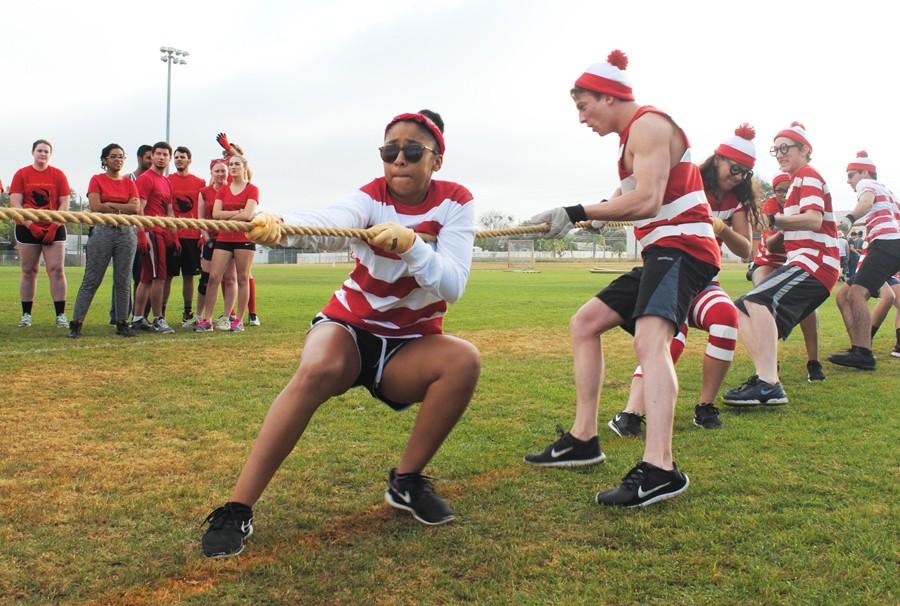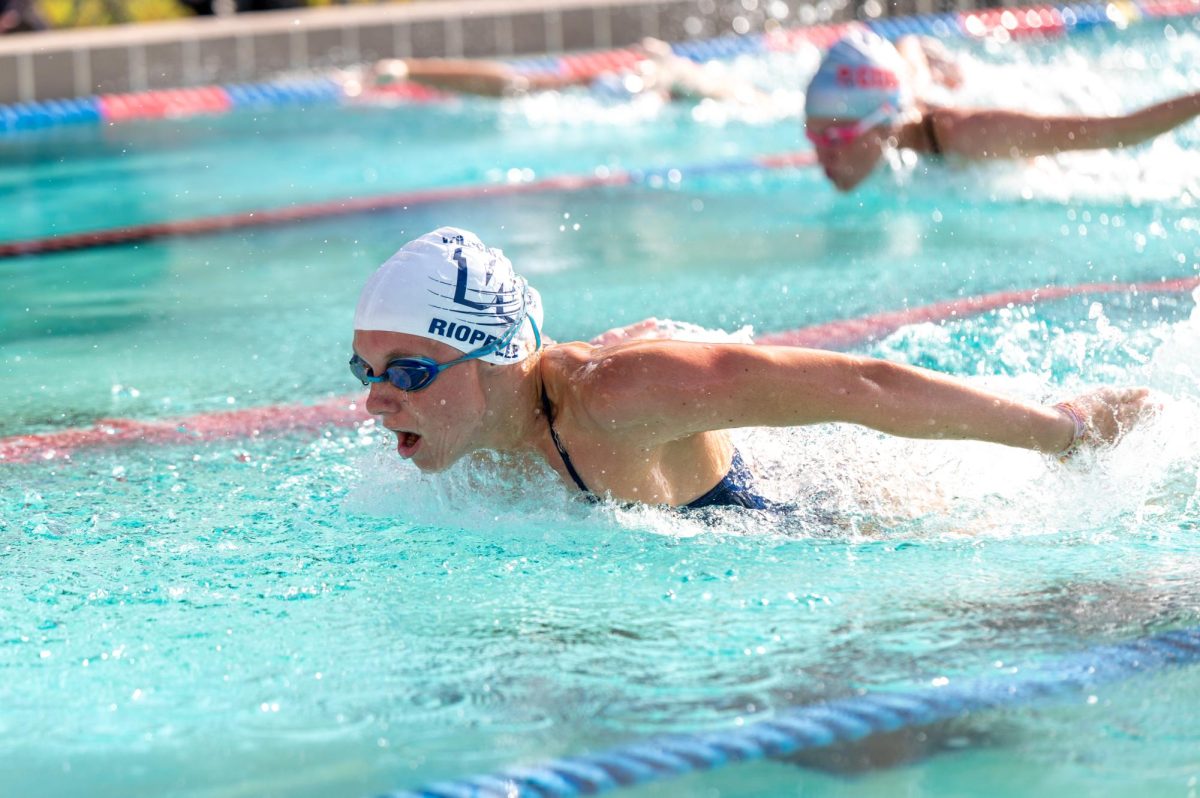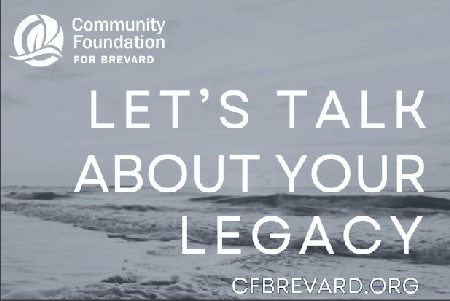School traditions rise, change and sometimes disappear
Members of Whitacre’s Waldos participate in the tug of war contest during the 2016 Wildcat Challenge.
August 17, 2022
As recent graduate Anastacia Devlin crafted her script for Senior Follies, during which the seniors and teachers roast each other, she recalled her brother’s performance when she was in seventh grade. But the event was canceled on April 8 due to a lack of script submissions.
“Because things have been so stressful in the last couple of years, I thought it was going to be a really good thing,” Principal Rick Fleming said. “But I can also understand that this year’s graduating class, for the past two years, they’ve been doing a modified learning platform. They haven’t had as much exposure to their teachers in a classroom setting as they would under normal circumstances.”
History teacher Kirk Murphy said the tradition was already on the decline.
“Senior Follies has always been a catch-as-catch-can kind of thing,” Murphy said. “I’m not sure Senior Follies will ever make it back.”
Career Day, in which students would sign up to see presentations by workers in three different careerfields, disappeared in 2012 following economic hardship in 2008.
“I do not miss Career Day,” Murphy said. “[Administration] typically wanted us to try and find somebody … or they’d assign you somebody. That was a Russian roulette of who you got. One time, I got two elderly ladies who pushed dental hygiene. It was lame to say the least.”
Pre-Calculus and Advanced Topics teacher Annamae Milligan said Career Day helped students realize how the information they were learning related to potential careers.
“The Blue Angels spoke to the upperclassmen, so it allowed the students to see the need for not only accuracy, but [to synthesize] information, [to] be able to analyze and see it in motion,” Milligan said. “I thought that was a fabulous experience, especially since I teach math.”
According to Murphy, the Senior Prank tradition was initially anticlimactic, then gained momentum.
“The first eighth grade class that was here put up a big inflatable monkey,” Murphy said. “It was a little lame, but it was a lot better than the original seventh graders because their senior prank killed mice. The idiots let them loose at the school. They dipped some of [the mice] in barbecue sauce, thinking that they’d run around and get the barbecue sauce all over. The barbecue sauce hardened on the poor mice, and then ants ate them alive, so I always tell every senior class, ‘I don’t care what you do, don’t kill anything.’”
Fleming said while he found humor in practical jokes such as hanging a “school for sale” sign containing the assistant principal’s phone number from the railings or filling the cafeteria with thousands of styrofoam cups of yellow water, pranks have the potential to cause harm.
“When I was beginning as a high-school principal, I had a couple of students that did some destruction of property,” Fleming said. “They put super glue in keyholes, and it costed a tremendous amount of money to fix those things. A couple students faced expulsion, and they didn’t get to graduate with their class.”
During Spirit Week, students dress up to fit a daily theme, with a Powderpuff game to cap off the week in which junior and senior girls play flag football as the boys cheer. For the first two years of Powderpuff, the girls played soccer.
“We actually had to talk the principal into letting them play football,” Murphy said. “Dr. Galbraith did not want anything to do with football, so it was a little bit of a struggle.”
Wildcat Challenge, in which the juniors and seniors compete in field-day events like tug of war and the trivia-based Brain Bowl, began as a way to keep the upperclassmen occupied while the rest of the student body took the FCAT assessment.
According to Devlin, traditions bring classmates together.
“My favorite part is that the people you go to school with aren’t necessarily your closest friends, but you don’t have to be friends with everybody—those events are times when you feel closest to them,” she said. “When you’re all working towards a common goal, whether it’s fighting against another team during Wildcat Challenge or trying to crush the juniors in Powderpuff, you all unite.”





















































